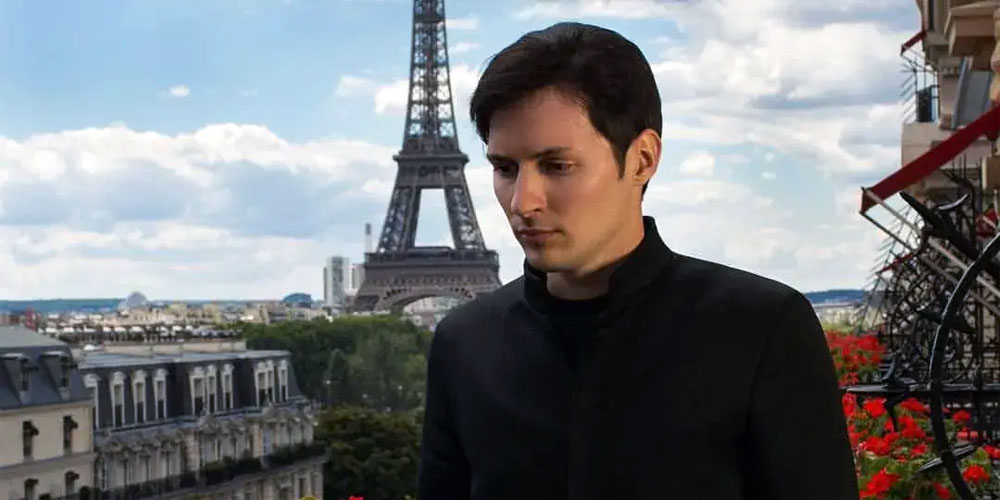The arrest of Pavel Durov, the founder and CEO of Telegram, by French authorities has sparked significant debate and speculation. This event is not just a legal matter but also a reflection of broader geopolitical and economic dynamics. Understanding the reasons behind this arrest requires a deep dive into the intersection of global finance, digital privacy, and state power.
Pavel Durov’s arrest on August 24, 2024, at Le Bourget Airport in Paris, was a result of multiple charges, including complicity in child sexual exploitation and drug trafficking due to insufficient moderation on Telegram. This arrest is unprecedented and has led to a significant outcry from free-speech activists and a deterioration in French-Russian relations. The French authorities’ decision to arrest Durov can be seen as a strategic move influenced by several factors.
Firstly, the global financial landscape is increasingly intertwined with digital technologies. Telegram, with its end-to-end encryption, has become a critical platform for both legitimate and illicit activities. The platform’s minimal restrictions on content have made it a haven for various illegal activities, including drug trafficking and child exploitation. French authorities, by arresting Durov, are sending a strong message about their commitment to combating these crimes. This move aligns with global efforts to regulate digital platforms and ensure they do not become tools for criminal activities.
Secondly, the arrest can be viewed through the lens of geopolitical power plays. France, like many other countries, is grappling with the challenge of balancing digital privacy with national security. By arresting Durov, French authorities are asserting their power and demonstrating their willingness to take decisive action against those who do not comply with their regulations. This move is also a signal to other tech giants about the importance of adhering to local laws and regulations.
The economic implications of this arrest are also significant. Telegram’s widespread use for both private communication and social media has made it a powerful tool in the digital economy. By targeting Durov, French authorities are addressing the broader issue of how digital platforms can impact economic stability. The arrest highlights the need for robust regulatory frameworks to manage the risks associated with digital technologies. This is particularly important in the context of the global economy, where digital assets and novel forms of financial intermediation are reshaping the international monetary system.
Moreover, the arrest of Durov can be seen as part of a broader trend towards increased regulation of digital platforms. Governments around the world are recognizing the need to regulate these platforms to prevent them from being used for illegal activities. This trend is driven by the growing importance of digital technologies in the global economy and the need to ensure that these technologies are used responsibly.
The arrest also has significant implications for the future of digital privacy. Durov has been a vocal advocate for digital privacy and has resisted efforts by governments to access user data. His arrest raises important questions about the balance between privacy and security. While it is essential to protect user privacy, it is also crucial to ensure that digital platforms are not used for criminal activities. This tension between privacy and security is a key issue in the digital age and will continue to shape the future of digital technologies.
In addition to these factors, Durov’s involvement with The Open Network (TON) adds another layer of complexity to the situation. TON was initially developed by Telegram as a blockchain platform aimed at decentralizing the internet. Despite facing regulatory hurdles, including a significant legal battle with the U.S. Securities and Exchange Commission (SEC) in 2020, which led to Telegram abandoning the project, TON has continued to evolve independently as Toncoin. This blockchain project has significant implications for the global financial system, as it represents a move towards decentralized finance (DeFi) and the potential disruption of traditional financial institutions.
The TON project raised $1.7 billion in two private funding rounds, attracting investments from Silicon Valley and Russian billionaires. The project’s ambition to create a decentralized internet and financial system posed a direct challenge to existing regulatory frameworks and financial institutions. By arresting Durov, French authorities may also be addressing the broader implications of such disruptive technologies on the global financial system.
Furthermore, the arrest of Durov has broader geopolitical implications. It highlights the ongoing struggle between state sovereignty and the borderless nature of digital platforms. As governments around the world grapple with the challenges posed by digital technologies, the arrest of high-profile tech figures like Durov serves as a reminder of the power dynamics at play. This event could potentially influence how other countries approach the regulation of digital platforms and the enforcement of their laws on a global scale.
The economic impact of Durov’s arrest extends beyond Telegram and TON. It raises questions about the future of digital currencies and blockchain technologies. As these technologies continue to gain traction, governments and regulatory bodies will need to develop new frameworks to address the unique challenges they present. The arrest of Durov underscores the urgency of these efforts and the need for international cooperation in regulating digital technologies.
In conclusion, the arrest of Pavel Durov by French authorities is a complex issue that reflects broader trends in global finance, digital privacy, and state power. It highlights the challenges of regulating digital platforms and the need for robust regulatory frameworks to manage the risks associated with digital technologies. The arrest also underscores the importance of balancing privacy and security in the digital age. As the global economy continues to evolve, these issues will remain at the forefront of discussions about the future of digital technologies and their impact on society. The involvement of TON adds another layer of complexity, emphasizing the disruptive potential of blockchain technologies and the need for careful regulation to ensure their responsible use.
